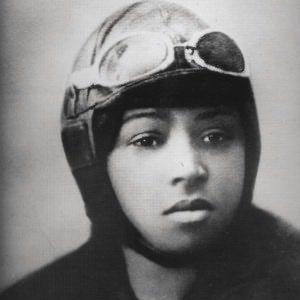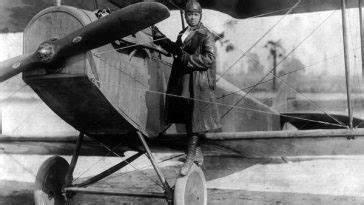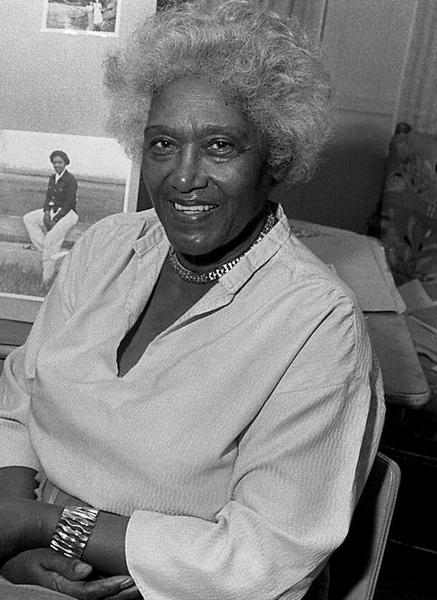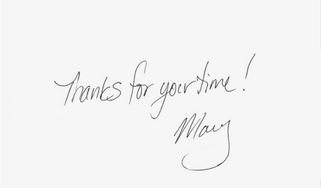2024 Hello , Black pilot Janet Harmon was turned away with the word "never" so many times it must have made her head spin. She was told 'no' over and over because she was black. And then the Tuskegee black pilot training school turned her down because she was a woman. But each
setback only increased her determination, and she became the first Black women in America to get a commercial pilot's license.
"Every defeat to me was a challenge.”
Janet Harmon was born in the small town of Griffin, Georgia, about 40 miles south of Atlanta to parents of African American and Cherokee descent. After graduating from Spellman College with a nursing degree, in 1933, she enrolled in the Curtiss Wright Aeronautical School in Chicago. The only woman along with 24 men admitted to the aircraft mechanics school. They were all black, but apparently the men didn't give her much credit until
she earned her private pilot’s license and bought an airplane she shared with other students.
Janet Harmon
Janet wanted to fly planes from the time she was a young girl and saw a billboard with the words: “Birds Learn to Fly. Why Can’t You?” But with her pilot's license in hand and her own plane, she still wasn't allowed to take off and land at most airports. “Aviation was not considered to be a suitable pursuit for blacks, who were deemed unable, both mentally and physically, to fly safely,” she
said. She and other students at Curtis Wright went looking for a site to build their own airfield and found one in Robbins, Illinois, a black town about 20
miles from Chicago. She contributed money to help buy the land, clear it and construct a landing strip. Inspired by Bessie Coleman, they formed "Challenge Aero Club" and Janet became president. You might have heard of Bessie Coleman as the first American black woman to become a licensed pilot in 1921, but she had to go to France to do it.
Bessie Coleman, the first African American licensed female pilot. “The air is the only place free from prejudice.”
Janet not only got her wings on U.S. soil, she helped other blacks take to the sky, too. She wrote articles publicizing "Negro Flight" in the black
newspaper, the Chicago Defender. And the Aero Club pilots held flying exhibitions to share their passion, show their skill and whet people's appetite for the sport. She easily passed the exam to become a commercial pilot, but the flight examiner refused to give her the certificate. “I’ve never given a colored girl a commercial pilot’s license,” he said. “I don’t intend to now.” Flying took a much more serious turn when
the US joined the fighting in WWII and Janet didn't hesitate to step up and volunteer. With ten years' experience, she may have been one of the most qualified to apply for the Women's Airforce Service Pilots. Arriving for the interview, she was greeted by Assistant Director Ethel Sheehy. "Well, I've never interviewed a colored girl for flying," Ethel said and sent Janet away. Not giving up, Janet tried the US military nurse corps. She'd worked as a registered nurse to fund her flight training and her purchase three airplanes, clocking almost 14 years at a Chicago hospital. The recruiter claimed the “colored quota” was full. She must have thought she had a chance when she applied for the Tuskegee Institute’s black Civilian Pilot Training Program. This time she had the right skin color. She passed the airborne test. But she was denied because she was female. “There were so many things they said women couldn’t do and blacks couldn’t do,” she told the Chicago Tribune in her later years. “Every defeat to me was a challenge.” Janet was finally able to get her commercial license in 1943, from Palwaukee Airport in Cook County, Ill.
Janet Harmon Waterford Bragg, the first Black woman to receive a commercial pilot’s license in the United States, Photo by Ron Medvescek, Arizona Daily
Star In 1946, she purchased a Super Cruiser, in which she logged many hours of cross-country flying, while also venturing into the nursing home business to care for black elders when she saw the need, “[people]
living on pads on the floor, with insufficient care . . . often with inadequate food and medical attention. Here they could live in dignity, in pleasant surroundings, eat well, and have good care.” She continued to fly for pleasure into the 1970s and was active in civic, charity and educational events for many years. In 1985, she received the Bishop Wright Air Industry Award for her outstanding contribution to aviation. The award is named for the father of Wilbur and Orville Wright. Janet died in 1993 and was inducted into the Arizona Aviation Hall of Fame in 2000. “According to recognized aero technical principles, the bumblebee cannot fly because of the shape and weight of its body in relation to its total wing area," she's quoted saying by the Arizona Daily Star. But the bumblebee doesn’t know this, so it goes ahead and flies anyway! Surely our bodies were not designed to fly, but our brains were, and we flew,
too.” She had obvious brains, earning a college nursing degree, graduating from CW Aeronautical University and doing postgraduate work at Loyola University and
the University of Chicago, as well as working with students and educational programs through the years. She also had heart. Courage. Generosity. Passion. Those give you
wings.
Like my article today? Please share:
Sources: Photo: http://todayinafricanamericanhistory.com/march-24th-in-african-american-history-janet-harmon-waterford-bragg/ https://www.chicagotribune.com/1993/04/13/aviator-janet-harmon-bragg-86/ https://siarchives.si.edu/blog/janet-harmon-bragg-female-aviator
News for you about a book that won't hit shelves for six months. It's the story of a school librarian who stood up at the public library
board meeting in her tiny village in Louisiana and spoke out against proposed book bans. Read what she said here... Then her
life became a nightmare as she became the target of online trolls and an organized campaign spreading lies about her.
From the publisher: Amanda Jones has been called a groomer, a pedo, and a porn-pusher; she has faced death threats and attacks from strangers and friends alike. Her decision to support a collection of books with diverse perspectives made her a target for extremists using book banning campaigns-funded by dark money organizations and advanced by hard right politicians-in a crusade to make America more white, straight, and "Christian." But Amanda Jones wouldn't give up without a fight: she sued her harassers for defamation and urged others to join her in the resistance... That Librarian draws the battle lines in the war against equity and inclusion, calling book lovers everywhere to rise in defense of our readers. Amanda speaks for librarians across the country who're being vilified for standing up for the right to read. Learn more here... Preorder the book
here...
Follow me on social media
This newsletter is a reader-supported publication. To support my work, consider becoming a paid subscriber.
Read
a great book? Have a burning question? Let me know. If you know someone who might enjoy my newsletter or books, please forward this e-mail. I will never spam you or sell your email address, you can unsubscribe anytime at the link below. To find out more about my books, how I help students, teachers, librarians and writers visit my website at www.MaryCronkFarrell.com. Contact me at MaryCronkFarrell@gmail.com. Click here to subscribe to this newsletter. |
|
|






